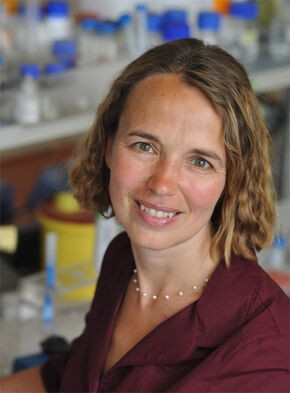Universitätsklinikum Jena
Institute for Biochemistry I
Nonnenplan 2
07743 Jena
Germany
Tel: -49-(0)36 41- 939 63 01
Biochemistry I
The institute serves to teach current biochemical knowledge and also contributes through its research to deepening our knowledge of the molecular basis of life. Such an understanding is a prerequisite for being able to specifically intervene in the cellular processes that underlie diseases.
Research of the institute
The institute's research efforts focus primarily on studying the functional interaction of the cortical actin cytoskeleton, which supports, shapes and moves the plasma membrane of each cell and helps to form special cellular structures with membrane transport processes and with modulations of membrane topology. This work provides insights into the individual processes as well as significant insights into their functional interaction.
Such an interplay appears to be crucial for the control and formation of defined cell morphologies, for cell movement and polarity, for the special performance of secretory cells, and for the organization of functional tissues and organs. It underlies, for example, the construction, maintenance and reorganization of functional and morphological specializations of cells, such as the synaptic connections of nerve cells. Efficient cell-cell communication and plasticity are the prerequisites for the brain's enormous performance. The communication of nerve cells via synaptic connections and the usage-dependent changes in synaptic transmission properties are the basis for learning and memory. (more)
We use a broad panel of modern methods of molecular biology, genetics, biophysics and biochemistry as well as of developmental and cell biology. Our work offers a variety of different possibilities to join us (Postdoc / PhD student / Diploma and Master student / trainees and research scholars).


